Class V
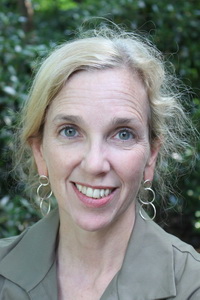
Maureen Berner
Professor, Government
Dr. Maureen Berner wanted to know more about how communities can successfully address what she calls “wicked problems” – in her case, hunger and food insecurity. Her project focused on how hungry children access, or fail to access, available federally supported summer meal programs. Through in-depth interviews and data from across the state and close interaction with state officials and nonprofit leaders, Berner concluded that the key to feeding hungry children is building local government and nonprofit capacity. She is a founding member of a new consortium of university researchers providing monthly advice on these programs directly to USDA officials and collaborating on new research projects prompted by USDA initiatives.
“The Thorp Faculty Engaged Scholars program is transformative. Rather than trying to fit engaged work into the traditional mold of scholarship, now I see how it can be embraced. The impact of my work has multiplied, opening more doors to more research, more outreach and more collaborations. I speak about my project all the time – from an audience of 2,000 through a Tedx Talk, to a small group of young social entrepreneurs, to an international academic conference in Spain and to middle school students in a Future Food Security Leaders summer camp in Wake County. I am still writing for the research community, but I am also invited to be at the policy-makers’ table. Thank you for this wonderful opportunity.”
For current information, visit Maureen Berner’s faculty page.
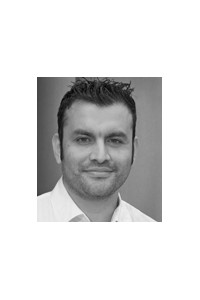
Juan Carillo
Former Assistant Professor, Education
Current Associate Professor at the MLF Teachers College at Arizona State University
When Juan Carrillo arrived in North Carolina in 2011, he noticed that the booming Latino population was largely addressed as an immigrant population. While there are many Latino immigrants in the state, the second generation Latinos are widely unnoticed. As Carrillo gave speeches and worked with advocacy groups in North Carolina universities, he faced a disappointing reality that there are few Latino male college students. The research confirms, mentorship matters.
In an effort to expose Latino males from low-income families to individuals who attend or teach at universities in the state, Carrillo founded the Trailblazers Mentoring Program, located at Southern School of Energy and Sustainability in Durham, North Carolina.
The Trailblazers program covers many areas including: Holistic masculinities development, lessons on history and ethnic studies, access to university and community based guests speakers, youth conducted action research related to addressing issues in their communities and mentorship. Carrillo looks to provide youth with advice, college information, strategies for academic success and to help develop strong cultural identities.
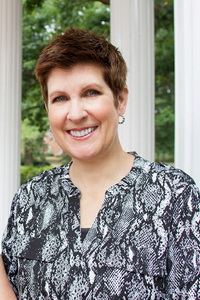
Barbara Friedman
Associate Professor, Media and Journalism
Dr. Barbara Friedman and her colleague in the School of Media and Journalism, Anne Johnston, co-direct The Irina Project (TIP), a project that monitors and studies media representations of sex trafficking and provides resources to news organizations and others for accurate and responsible reporting of the issue. TIP is the only organization to have as its sole focus theoretical and applied research of media coverage of trafficking. For the Thorp Faculty Engaged Scholars program, the two advanced a web-based resource that includes best practices, interactive data on trafficking, and interviews with expert sources including survivors, blog essays, tip sheets, research notes and more. Friedman and Johnston trained print, broadcast and digital journalists to cover trafficking and continue to field queries from reporters around the world working on this issue. Most recently, they partnered with a group preparing an anti-trafficking campaign for the state of North Carolina.
“Our research showed us what the challenges are for reporting news on the complex issue of sex trafficking, but it was our involvement as Thorp Faculty Engaged Scholars that showed us how best to support journalists doing that work. The program provided the intellectual enrichment, collegiality and financial support critical to moving The Irina Project forward in meaningful ways.”
For current information, visit Barbara Friedman’s faculty page.
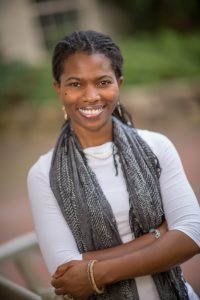
Cheryl Giscombe
Melissa and Harry LeVine Family Professor, Nursing
Dr. Cheryl Giscombe is the LeVine Wellness Distinguished Associate Professor in the School of Nursing. Her work as a Thorp Faculty Engaged Scholar strengthened her existing partnership with Healing with CAARE, Inc. Through the FES program, Giscombe completed two research studies in collaboration with her community partner; one focused on substance abuse relapse prevention and the other focused on chronic stress and diabetes risk reduction. Giscombe provides training in culturally sensitive, contextually relevant, team-oriented, evidencebased, holistic care including a focus on healthcare systems and policy. This type of learning for healthcare professionals has been found to increase empathy and insight, and to increase acuity of focus on changes needed to positively impact care, access and population health.
“The Faculty Engaged Scholars program strengthened my ability to successfully collaborate with my community partner. I am more informed about how to engage in this partnership in a way that is beneficial socially (e.g., contribute to services for underserved communities) and academically. My students at all levels have also benefited by completing undergraduate, graduate and doctoral projects based on my communityengaged work. I learned how to develop my community-engaged work so that it could be a scholarly endeavor. I was awarded tenure last fall, and I KNOW that my engaged work played a big part in demonstrating my value as a faculty member. I look forward to continuing to build my program of scholarship and I am forever grateful for this opportunity.”
For current information, visit Cheryl Giscombe’s faculty page.
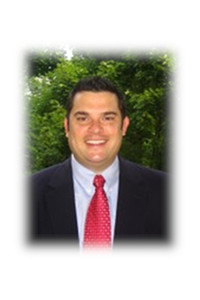
Adam Jacks
Associate Professor, Allied Health Sciences, Speech and Hearing Sciences
Dr. Adam Jacks is a speech-language pathologist who studies the impact of stroke and other neurological diseases on communication. Much of his current work focuses on identifying predictors of life participation in communitydwelling stroke and brain injury survivors with impaired communication (i.e. aphasia). His Faculty Engaged Scholars project focused on providing language assessments to people with aphasia in the community with no access to treatment, as well as to those who attend communication groups at Triangle Aphasia Project Unlimited (TAP), a Carybased nonprofit organization. Jacks’ project provided opportunities to build relationships with speech-language pathologists in the community, including a clinical research forum with equal contributions by academic researchers and practicing clinicians.
“My participation in the Thorp Faculty Engaged Scholars program provided me with a new perspective on the relationship between scholars and stakeholders in the community. The more input that practicing clinicians, patients and their loved ones have in the research process, the greater impact we all can have. I am grateful for this program and the interactions with other scholars striving for excellence in community-based research.”
For current information, visit Adam Jacks’ faculty page.
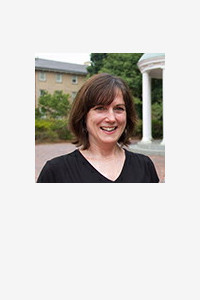
Anne Johnston
Parker Distinguished Professor, Media and Journalism
Dr. Anne Johnston and her colleague in the School of Media and Journalism, Barbara Friedman, co-direct The Irina Project (TIP), a project that monitors and studies media representations of sex trafficking and provides resources to news organizations and others for accurate and responsible reporting of the issue. TIP is the only organization to have as its sole focus theoretical and applied research of media coverage of trafficking. For the Thorp Faculty Engaged Scholars program, the two advanced a web-based resource that includes best practices, interactive data on trafficking, and interviews with expert sources including survivors, blog essays, tip sheets, research notes and more. Johnson and Friedman trained print, broadcast and digital journalists to cover trafficking and continue to field queries from reporters around the world working on this issue. Most recently, they partnered with a group preparing an anti-trafficking campaign for the state of North Carolina.
“The FES program transformed the way we thought about our communities and their involvement in our research. The groups and organizations we visited were so committed to serving and helping their communities and to involving these communities in the development and implementation of their research and programs. This model of interacting with communities really expanded our view of who our communities are and how we should be engaged with all of them.”
For current information, visit Anne Johnston’s faculty page.
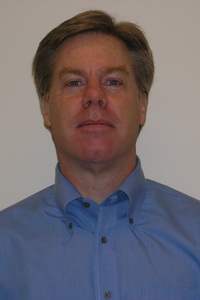
Steve May
Associate Professor, Communication Studies
Dr. Steve May’s research focuses on exploring organizational ethics and corporate social responsibility, with emphasis on studying public-private, cross-sector partnerships that seek to solve a range community problems. May’s Faculty Engaged Scholars project identified best practices of corporate social responsibility initiatives to understand successful strategies for business-community partnerships that are equitable, collaborative and produce sustainable impact. These best practices include creating a shared vision by focusing on common interests and values; identifying and engaging diverse sets of stakeholders, with mutually reinforcing activities; developing trust by communicating candidly and engaging in continuous learning; creating shared measurements of progress and impact; and providing knowledge and expertise through best practices. Using project findings, May produced a web-based knowledge database that includes scholarly findings, case studies, white papers, a blog and assessment tools to be used by cross-sector partners.
“The Thorp Faculty Engaged Scholars program provided me with an invaluable opportunity to learn from other scholars and community leaders committed to solving local problems in a collaborative and sustainable manner. The enthusiasm, insight and integrity of all the participants are a testament to our conviction to be the university ‘of the people and for the people.’ The program integrates theory and practice in a way that further strengthened my ongoing program of research, raising new questions and offering innovative strategies to impact partnerships between universities, businesses and nonprofit organizations to solve social, political and economic problems. It offered me a supportive intellectual home to take my research into communities and provide a knowledge database for other scholars and community members who want to engage in dialogue to produce constructive community transformation.”
For current information, visit Steve May’s faculty page.
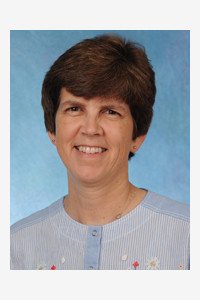
Vicki Mercer
Associate Professor, Allied Health Sciences
Dr. Vicki Mercer’s research focuses on improving balance and preventing falls in older adults and individuals with neurological disorders. In her Faculty Engaged Scholars project, she expanded her work with the Community Health and Mobility Partnership (CHAMP) program in western North Carolina. CHAMP is a falls prevention program that Mercer developed in 2009 with community partners from senior centers, hospitals, physical therapy clinics and community colleges. Through CHAMP, interdisciplinary teams of health care providers work with older adults at senior centers and other community sites to improve their balance and muscle strength and decrease their risk of falls.
“I have learned a great deal as a Faculty Engaged Scholar that has helped to advance my community falls prevention work. Through first-hand experiences with other community-based initiatives and interactions with other scholars, I’ve gained a much better understanding of how to build infrastructure and public relations networks to increase support for a project. I’ve also developed a lasting appreciation for the mutual benefits that can result from strong academic-community partnerships.”
For current information, visit Vicki Mercer’s faculty page.
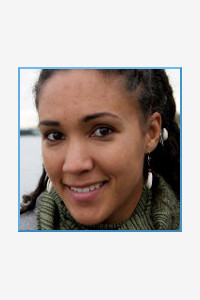
Chérie Ndaliko
Associate Professor, Music
Dr. Chérie Ndaliko explored parallels between students in eastern Congo whose lives are inflected by war and violence and students in economically underprivileged communities in North Carolina. Common to both groups of students is limited access to arts education that leaves them with fewer opportunities to develop empowering critical thinking skills. To interrupt this cycle, Ndaliko created an interactive arts curriculum for North Carolina students that uses examples from Africa to foster critical thinking skills and cultivate global perspectives. In partnership with the Global Scholars Academy in Durham, North Carolina, the curriculum allows students to partner on creative projects with their Congolese peers, permitting those without the financial means to travel to have cross-cultural experiences.
“For me, the Thorp Faculty Engaged Scholars program has been a catalyst for new ideas, a source of new relationships and an oasis for contemplation. It opened my eyes to the many ways I can creatively integrate global research into local classrooms and ushered me into a network of like-minded colleagues. In short this program has transformed my understanding of socially engaged scholarship at Carolina and empowered me to put my academic work to the service of society in more effective ways.”
For current information, visit Chérie Ndaliko’s faculty page.
